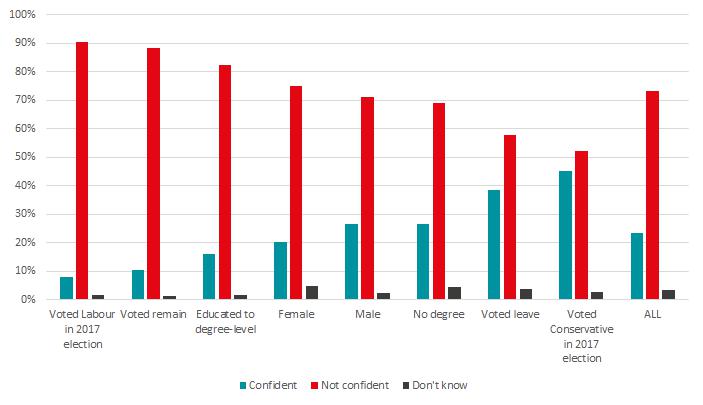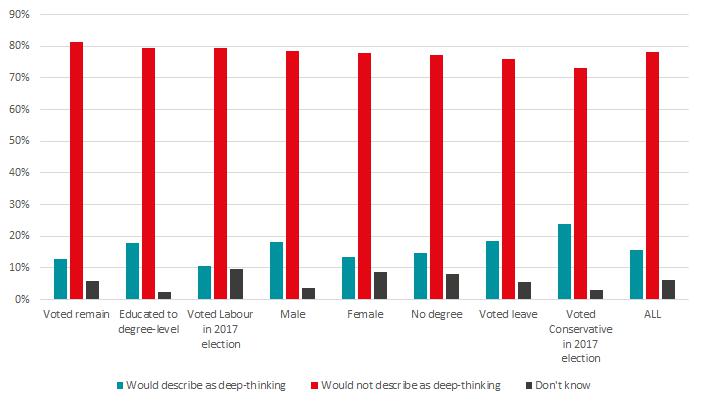Polling finds little public confidence in politicians to have fresh ideas on the economy
Article
Fewer than one-quarter of respondents (23 per cent) were confident that the government could do so, while 73 per cent said they weren’t confident. Those expressing confidence in the current government to do so were in the minority among both Leave and Remain voters, among Labour and Conservative voters, and across all age groups.
How confident, if at all, are you in the government to come up with new ideas to boost the economy?

Source: IPPR analysis of Sky Data poll
The poll also found that 78 per cent of the public would describe the current crop of “leading politicians” from all sides as “stale”, while only 16 per cent would describe them as “deep-thinking” and 11 per cent as “imaginative”. An overwhelming majority of all groups shared that view, regardless of age, education or voting history – with more than 80 per cent of those who voted either Conservative or Labour at the last election saying politicians were not imaginative.
To what extent, if at all, would you describe the current crop of leading British politicians as…? Stale

Source: IPPR analysis of Sky Data poll
To what extent, if at all, would you describe the current crop of leading British politicians as…? Imaginative

Source: IPPR analysis of Sky Data poll
To what extent, if at all, would you describe the current crop of leading British politicians as…? Deep-thinking

Source: IPPR analysis of Sky Data poll
The results suggest that, as the UK confronts the possibility of a period of much slower growth in the wake of our exit from the European Union, the public has little confidence in politicians’ ability to generate the sorts of policy ideas that will boost the economy, and offset Brexit’s negative economic effects.
Sky Data is a member of the British Polling Council and abides by its rules. The survey base was a nationally representative sample of 1,443 Sky customers, weighted to match the profile of the population. Respondents were interviewed online, 28 September – 1 October 2018.
Related items

The full-speed economy: Does running a hotter economy benefit workers?
How a slightly hotter economy might be able to boost future growth.
Making the most of it: Unitarisation, hyperlocal democratic renewal and community empowerment
Local government reorganisation need not result in a weakening of democracy at the local level.
Transport and growth: Reforming transport investment for place-based growth
The ability to deliver transformative public transport is not constrained by a lack of ideas, public support or local ambition. It is constrained by the way decisions are taken at the national level.